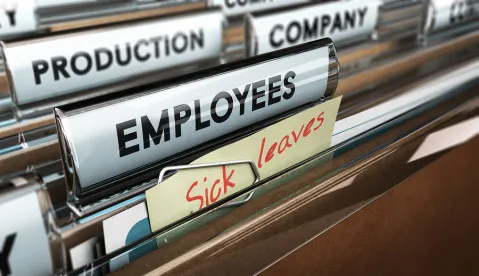On January 19, 2018, New York City enacted Int. No 804-A(“Bill”), which will amend the New York City Human Rights Law (“NYCHRL”) to require covered entities—including employers and public accommodations—to engage in a cooperative dialogue with individuals who may be entitled to a reasonable accommodation under the NYCHRL. The term “cooperative dialogue” means the process by which a covered entity and an individual who may be entitled to an accommodation exchange information to identify the individual’s needs, his or her requested accommodation(s), and potential alternatives to the requested accommodation(s). The Bill becomes effective on October 15, 2018.
When Will Employers Be Required to Engage in a Cooperative Dialogue?
Under the Bill, employers will not be allowed to refuse or otherwise fail to engage in a cooperative dialogue within a reasonable timeframe with a person who has requested an accommodation—“or who the [employer] has notice may require such an accommodation”—related to:
-
religious needs;
-
a disability;
-
pregnancy, childbirth, or a related medical condition; or
-
such person’s needs as a victim of domestic violence, sex offenses, or stalking.1
The Bill will require employers to provide the individual requesting an accommodation a written final determination identifying any accommodation that has been either granted or denied.2 Importantly, the Bill states that “the determination that no reasonable accommodation would enable the person requesting an accommodation to satisfy the essential requisites of a job or enjoy the right or rights in question may only be made after the parties have engaged, or the covered entity has attempted to engage, in a cooperative dialogue” (emphasis added).
What New York City Employers and Public Accommodations Should Do Now
The Bill will go into effect on October 15, 2018. In the meantime, covered entities operating in New York City should do the following:
-
Review and, if necessary, revise existing accommodation policies and procedures to ensure compliance with the Bill, specifically with respect to the elements of a “cooperative dialogue”—i.e., how you will determine whether a requested accommodation is reasonable and, if it is not, that you will consider whether an alternative reasonable accommodation is feasible.
-
Train human resources staff on the requirements of the Bill, including:
-
the nature of a “cooperative dialogue”;
-
the need to engage in this dialogue prior to making a determination about a requested accommodation; and
-
for employers, the necessity of providing a written response to the employee who requested the accommodation.
-
-
Keep in mind that an individual need not request an accommodation to trigger the obligation to engage in, or attempt to engage in, a cooperative dialogue; the obligation to do so also arises when the covered entity has “notice” that an accommodation may be required. The Bill does not define “notice,” but it may include (in the employment setting) a job applicant in a wheelchair or (in a public accommodation) a person walking with a guide dog. Accordingly, employees should be trained in how to properly identify and respond to such situations.
1. With regard to public accommodations, an entity’s obligation to engage in a cooperative dialogue with a customer or other member of the public appears to be limited to only the situation in which an accommodation has been requested, or the entity has notice that an accommodation may be required, due to a disability.
2. Public accommodations need not provide the final determination in writing.






 />i
/>i
